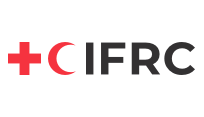T.50 Supervised Handwashing
Supervised Handwashing is a technique used to instil good handwashing practices among children by teaching them how to wash hands and monitoring their routine in either a household environment or school. Children are taught how to wash their hands correctly and reminded to wash hands during critical times.

Handwashing can be supervised by parents or elders in the household and by teachers in a school environment where group handwashing can be more effective. Handwashing with soap and water as a group activity under supervision draws on the principle of skills-based education. Additionally, it encourages Peer Learning T.29, may lead to improved Social Norms B.6 and is a motivating and fun activity for children. Pupils are typically taken through the steps of handwashing to ensure that they are washing their hands effectively. When performed at the same time each day (e.g. before lunch), the activity becomes a routine. Over time, the group activity will contribute towards making handwashing a habit for learners and induce a sense of normalcy. To make Supervised Handwashing a successful activity in schools, hygiene promoters must train teachers, provide necessary group handwashing infrastructure P.2, ensure soap availability P.6 and provide pictorial information e.g. by hanging posters close to handwashing stations T.19. The Beautification T.4 of handwashing facilities encourages children to adopt group handwashing as a fun activity. Innovative handwashing stations use rainwater collection tanks which allow children to wash hands even if there is no piped water. Investing in adequate infrastructure and the provision of soap and water are the most important requirements for Supervised Handwashing.
Applicability
Supervised Handwashing with children applies in all contexts and stages in the response where low handwashing rates are a problem. During the acute response, simple handwashing structures such as Tippy Taps that can be constructed quickly and provided with soap may be required. During the stabilisation and recovery phase semi-permanent and permanent handwashing structures can be constructed and training of trainers (such as schoolteachers) carried out before routine Supervised Handwashing is established in schools. It can be scaled up, along with other hygiene habits, at an institutional level using approaches like Fit for School F.10 and Three-Star Approach F.11.
Do
Ensure provision of soap and water ([P.2] and [P.3]) and construct child-friendly handwashing stations
Consider combining Supervised Handwashing with Songs [T.47]
Have posters [T.19] and Print Media [T.33] on handwashing near handwashing stations
Integrate handwashing into school timetables
Don't
Do not shame children in front of peers during handwashing
Do not provide handwashing infrastructure before training teachers and staff
Do not place handwashing facilities far away from the classrooms
Practical Example
After cyclone Winston in Fiji, teachers were trained in WASH with the Fijian Teachers Association WASH Unit. The aim was to ensure that children returning to school avoided disease by establishing functional WASH facilities at the worst-affected schools. Teachers were trained to Supervise Handwashing with soap every day and signs were hung up on the steps to the latrines to remind children to wash their hands.
Key Decision Critria
Response Phase
HP Component
Target Group
Application Level
References Guide to Supervised Handwashing in schools
Pizzacalla, K., Nantume, G. (2019): Guide to WASH in Schools. WinS Models that Work, GIZ
Monse, B., Naliponguit, E. et al. (2014): Manual for Teachers for the Implementation of the Essential Health Care Program in Schools, Fit for School Inc
Fit for School (2014): School Community Manual Indonesia, GIZ
Supervised Handwashing case study from Fiji
Akvo (2017): Emergency Support to WASH in Schools





